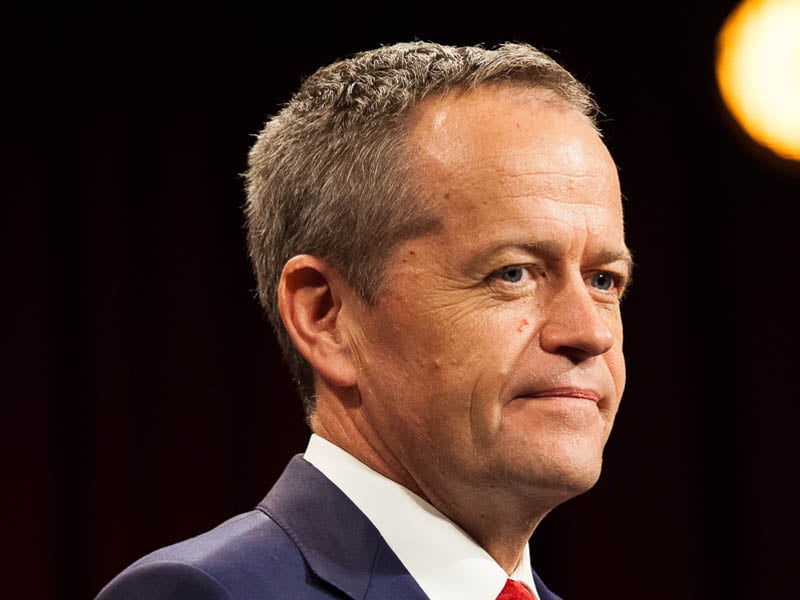The popular interactive games fund would be reinstated under an elected Labor government, with $25 million in funding pledged over three years.
Labor leader Bill Shorten made the election campaign commitment at The Espy in Melbourne on Saturday afternoon, as part of the Opposition’s overall creative arts policy package.
The Australian Interactive Games Fund was launched by the previous Labor government in 2013 with $20 million in funding. It was scrapped the next year by the Coalition government, and there has been no federal support for the Australian games sector since.

A Greens-led senate inquiry into the sector recommended the fund be reinstated, but this was merely “noted” by the Coalition, which pointed to other funding on offer from the National Innovation and Science Agenda.
Labor has now committed to reinstating the fund, which will provide an “effective way for game developers to access finance to help them develop products and grow as businesses”.
“Restarting the fund will kick start the rapid growth of our games development sector through the establishment of new game studios in Australia, investment and projects flowing into existing Australian studios and a range of joint ventures,” the Labor arts policy said.
“This will enable a variety of works and the generation of original intellectual property in long-form games, apps, virtual reality and augmented reality with output across the arts, communications, digital economy, innovation, education, training, health, defence and more.”
The previous Interactive Games Fund was administered by Screen Australia and provided grants to game developers through two streams.
The games enterprise scheme provided funding of up to $1 million over three years to developers for operating costs to help grow the business and fund options, while the games production stream provided funding of up to $500,000 for specific games projects.
Despite its brief existence, the fund was hugely popular in the local games sector, and provided funding to a number of now-successful games and studios.
The fund provided $10 million before it was shut down, with $6 million going towards 10 development studios, $3.7 million for 36 individual game projects and $120,000 for general sector building.
Labor has been mulling bringing back the games fund for more than a year, with shadow communications minister Michelle Rowland meeting with industry representatives as part of a roundtable discussion early last year.
The Interactive Games and Entertainment Association has been pushing for the fund to be reinstated since it was scrapped, and CEO Ron Curry said he was “heartened” by Labor’s announcement.
“IGEA and our members are encouraged and grateful for this commitment from the Labor Party who recognise that game development is an industry of the future and is worth supporting. Australian game developers are creative, talented, resilient and ready to lead and grow the digital revolution,” Mr Curry said.
“Should the Labor Party win the election, we are ready to work with them on the re-establishment of the fund to deliver successful outcomes for the industry.”
The IGEA’s election policy document had called for $40 million in funding for the scheme to “make up for lost years and to bring Australia to the global stage quicker”.
Federal support for the games sector has been non-existent since the fund was scrapped in 2014, with the industry falling between the portfolio cracks.
“Game developers are inexplicably locked out of support from Screen Australia, despite games being a form of screen content and other forms of interactive content like VR / AR being eligible,” the IGEA said.
The senate inquiry into the sector tabled its report in 2016, recommending a funding scheme based on the former fund, along with a number of other support mechanisms.
The government provided its response more than 600 days later, and merely noted or rejected most of the recommendations.
The Greens “laid down the gauntlet” to the major parties last year with its own games sector policy package, including $100 million for the games development fund, extending tax breaks on offer to the film industry and $5 million for co-working spaces.
Labor leader Bill Shorten said the creative economy will be a major focus of his party if it wins the election on Saturday.
“For a Labor government, we put our story of our arts at the centre of what we do as a nation. The arts is a political issue, the arts does deserve attention and support, the arts does deserve to have a government at least as brave and at least as creative as our own Australian artists and that’s what we will give you next Saturday if you vote Labor,” Mr Shorten said on Sunday.
“There are vested interests in this nation who do not agree with Labor’s priorities. You will not see the conservatives having an arts policy launch when they don’t even have a policy.”
Labor’s arts package also included $60 million for the ABC and SBS to produce Australian screen content.
Do you know more? Contact James Riley via Email.

